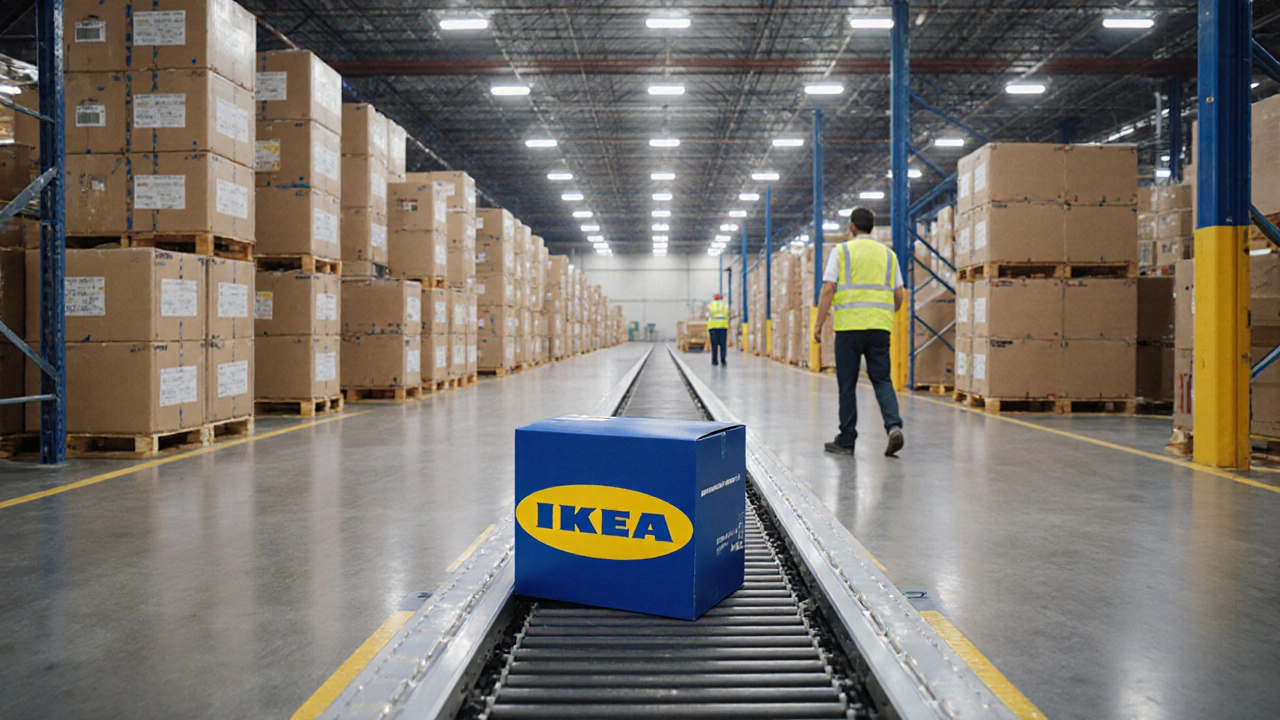- Steel Production: Which US City Takes the Crown? Jun 12, 2025
- What is the richest furniture company in the world? Nov 21, 2025
- Top 2 Manufacturing Businesses to Watch in 2025 Oct 18, 2025
- Discovering India's Strongest Wood for Durable Furniture Mar 23, 2025
- Is Mercedes Owned by Tata? Clearing Up the Confusion May 18, 2025
Top Manufacturing Companies – Your Guide to Industry Leaders
Ever wondered why some manufacturers seem to dominate the market while others fade away? It isn’t luck. The best companies combine solid processes, cutting‑edge tech, and a clear focus on quality. In this guide we break down what separates the leaders from the rest and give you a quick way to spot the right partner for your projects.
What Makes a Company a Top Manufacturer?
First off, a top manufacturer never compromises on quality. They use proven standards like ISO 9001 and keep a tight feedback loop with customers. When a defect pops up, they fix it fast and adjust the process so it doesn’t happen again.
Second, technology is a game‑changer. Companies that invest in automation, AI‑driven analytics, and smart factories can produce more, faster, and with less waste. Think of a plant that can re‑route a production line in real time to avoid bottlenecks – that’s the kind of agility the market rewards.
Third, sustainability matters more than ever. Leaders track energy use, recycle scrap, and source raw materials responsibly. Not only does this cut costs, it also opens doors to customers who demand green practices.
Finally, talent and culture keep the engine humming. Skilled workers, continuous training, and an open culture where ideas flow freely drive innovation. When employees feel valued, they push the factory toward better performance.
How to Spot the Leaders in Your Market
Start with rankings and awards. Lists like the US Manufacturing Rankings give you a quick snapshot of who’s on top and why. Look for companies that appear repeatedly across different reports – consistency signals real strength.
Next, dig into case studies. A good manufacturer will showcase projects where they solved a tough problem, reduced costs, or delivered faster than competitors. Those stories reveal the tools and mindset they use daily.
Don’t forget to check their digital footprint. A modern website, active social channels, and transparent supply‑chain data all point to a company that embraces technology and communication.
Ask for references. Talk to current or past clients about delivery times, product quality, and after‑sales support. Real‑world feedback beats any glossy brochure.
Finally, compare pricing with value. The cheapest option often cuts corners. A top manufacturer may cost a bit more, but the lower risk of downtime, higher product reliability, and faster time‑to‑market usually pay off.
If you’re curious about how the United States stacks up globally, check out our article “US Manufacturing Rankings: Where Do They Stand?” It breaks down the country’s position, key players, and tech trends. For a peek at what products are driving the American market, read “Top 10 Best‑Selling Manufactured Products in the United States.” Both pieces give useful context as you evaluate potential partners.
In short, the best manufacturers blend quality, technology, sustainability, and people. Use rankings, case studies, and real client feedback to separate the hype from the real deal. Armed with these tips, you’ll be ready to choose a partner that helps your business grow, not hold it back.
What is the richest furniture company in the world?
- Aarav Sekhar
- Nov 21, 2025
IKEA is the richest furniture company in the world with over $48 billion in revenue. Indian furniture manufacturers are growing but still far behind in scale, capital, and global reach.
Most Profitable Manufacturing Businesses in the USA 2025
- Aarav Sekhar
- Oct 19, 2025
Discover which U.S. manufacturing sectors deliver the highest profit margins, why they excel, and how to evaluate opportunities with real metrics and regional insights.
Top 2 Manufacturing Businesses to Watch in 2025
- Aarav Sekhar
- Oct 18, 2025
Explore the two leading manufacturing businesses-Jaguar Land Rover and Unilever-by revenue, innovation, sustainability and UK support. Learn what makes them top performers and how to emulate their success.
US Manufacturing Rankings: Where Do They Stand?
- Aarav Sekhar
- Mar 20, 2025
Curious about where the US stands in the global manufacturing arena? This article digs into America's ranking in the manufacturing sector, exploring key players, technological innovations, and challenges the industry faces. Discover interesting facts and tips about the companies leading the charge, the role of technology, and how the US competes globally. A must-read for anyone wanting to understand the intricacies of US manufacturing.
Top 10 Best-Selling Manufactured Products in the United States
- Aarav Sekhar
- Jan 3, 2025
The United States boasts a powerhouse manufacturing sector, producing a variety of products that are pivotal in both domestic and international markets. From automobiles and electronics to cutting-edge aerospace technology, these products not only drive the economy but also showcase innovation and quality. The article delves into the top 10 manufactured products in the USA, offering insights into their impact and significance in the manufacturing industry.




